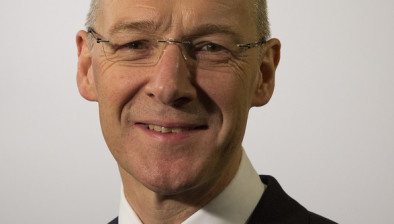Scottish government announce help for high growth start-ups

Fiona Hyslop
High growth start-up companies and university spinout projects will receive grants from the Scottish government to help them grow in the wake of the COVID-19 pandemic.
Part of a £3 million package of support, the funding provides grants of up to £50,000 for 41 high growth potential start-ups and up to £130,000 for 16 spinout projects. It also includes bespoke support to help the businesses develop.
Economy secretary Fiona Hyslop said: “Start-up and spinout companies, many of which are in the technology, digital and low carbon sectors, are the future of our economy. They are driven by the spirit of entrepreneurship and innovation.
“Crucially, they are the kind of enterprises that create high-quality jobs, and which attract investment into Scotland – both of which will be vital to successfully rebuilding the economy after the damage caused by COVID-19.
“By supporting start-up companies and spinout projects through this funding we can not only help them survive, but give them the potential to prosper. This is a key part of our long-term mission to create new jobs, good jobs and green jobs.”
Steve Dunlop, CEO of Scottish Enterprise said: “The COVID-19 pandemic has had far-reaching impacts on all aspects of our business base including our high growth early stage businesses and university spinouts.
“It’s vital we continue to support these ventures so that those with the very best growth potential can flourish into significant businesses of the future. We’re pleased to have been able to work at pace with our partners to identify these projects and to get the funding to them in such a short space of time.
“We will continue to work closely with the companies and spinout teams to provide a range of support that will help them further develop and attract new future investment.”
The University of Edinburgh’s innovative Exergy3 spinout project is one of the first to be awarded funding. It aims to provide power storage using electric-to-electric thermal energy story technology, has the potential to convert existing fossil fuel burning power plants to zero carbon energy storage systems.
The pandemic meant that work on Exergy3’s small-scale prototype ground to a halt, however, with the additional support from the Scottish government, the team is now able to progress and take the technology a step closer to commercial use.
Dr Adam Robinson, lecturer in mechanical engineering at the University of Edinburgh, added: “This funding will springboard us to the next stages of our project where Exergy3 can be central to Scotland’s low carbon transition. We can now complete and test our small-scale prototype, build a consortium to demonstrate our technology on a working power plant, as well as demonstrate the commercial case for our technology. Energy3 has global export and investment potential and could provide high quality sustainable jobs of the future.”










